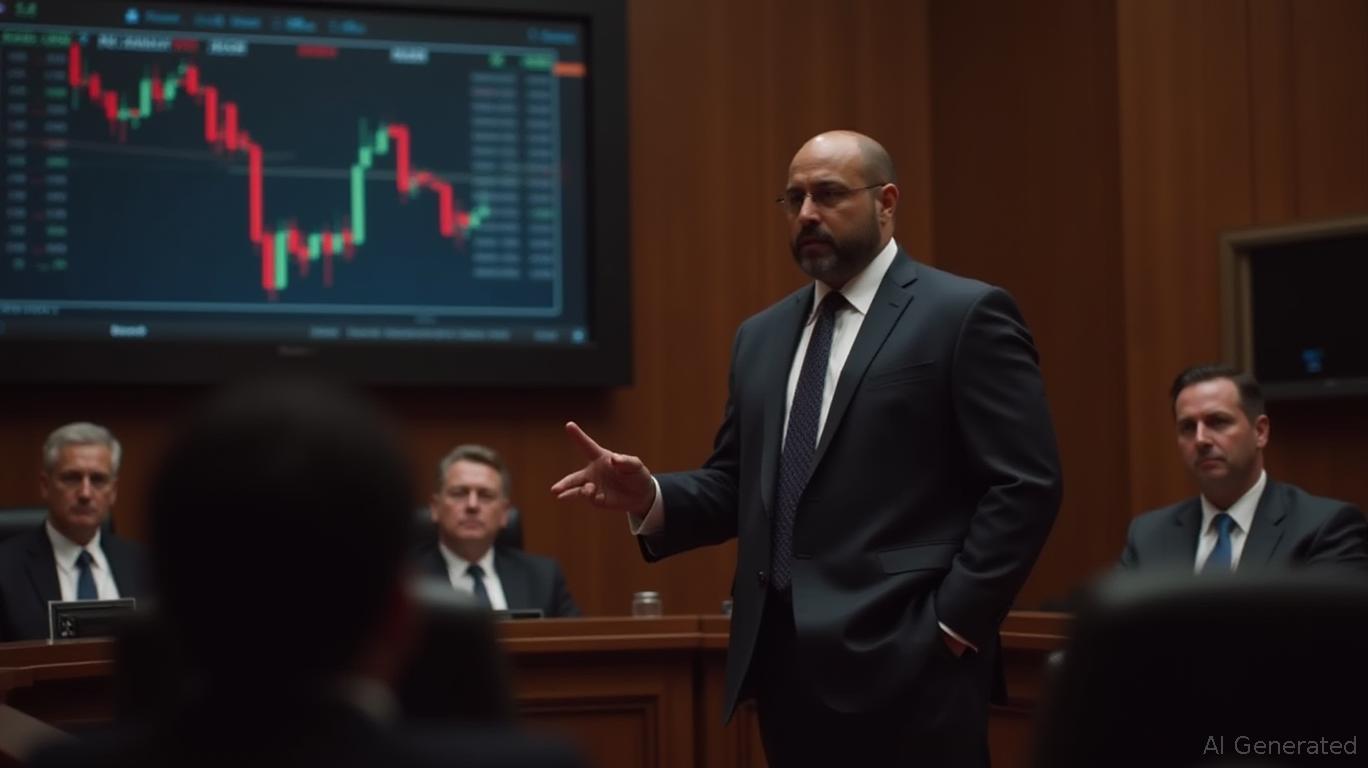Kalshi’s Federal Lawsuit Challenges CFTC Authority Amid Conflict With New York Sports Betting Prohibition
- Kalshi sues New York over sports betting ban, claiming CFTC's federal jurisdiction under the Supremacy Clause. - New York alleges Kalshi operates unlicensed contracts as "sports wagering," demanding compliance with state gambling laws. - Legal experts highlight federal courts' prior favor toward Kalshi, citing CFTC's 2020 DCM designation as regulatory shield. - Case could set precedent for state-federal regulatory conflicts, with Kalshi risking $50M+ annual revenue if banned in New York. - Mixed judicial
Kalshi, a prediction market platform registered with the CFTC, has initiated a federal lawsuit against the New York State Gaming Commission in an effort to halt the enforcement of the state's prohibition on its sports betting contracts. The company contends that the Commodity Futures Trading Commission (CFTC) has sole authority over derivatives trading under the Commodity Exchange Act, making New York's regulatory measures unconstitutional under the Supremacy Clause, as reported by a
The conflict arises from a cease-and-desist order issued by New York on October 24, which accused Kalshi of running an unauthorized mobile sports betting service. State officials classified Kalshi's offerings as "sports wagering" under local statutes, requiring the company to adhere to the same licensing, tax, and regulatory standards as conventional sportsbooks, according to

Legal analysts observe that Kalshi's tactic of initiating proceedings in federal court has proven advantageous in previous disputes. Daniel Wallach, an expert in gaming law, pointed out that this legal strategy shifts the focus to federal preemption rather than the contracts' legality. In comparable cases in Nevada and New Jersey, courts have issued preliminary injunctions in Kalshi's favor, determining that the CFTC's exclusive regulatory authority over swaps and futures overrides state laws, as referenced in a
The implications are significant for Kalshi, which projects that it could lose more than $50 million in annual revenue in New York if forced to discontinue its services. The company is also facing increasing regulatory scrutiny, with states such as Illinois and Arizona likely to adopt similar measures as New York. Wallach suggests that recent court decisions favoring state regulators, like Nevada's dismissal of Crypto.com's case, may encourage additional states to challenge prediction markets, as noted by Decrypt.
The New York gaming commission has yet to issue a public statement regarding the lawsuit but has reiterated its mandate to uphold state gambling regulations. The commission's cease-and-desist notice warned of "imminent civil penalties and fines" should Kalshi persist in offering sports event contracts, which the commission sees as undermining the state's regulated sports betting sector, according to Sports Betting Dime.
The resolution of this legal battle could influence the future relationship between state and federal authorities in the fast-changing prediction markets industry. With more than 1.2 million event contracts traded each year on CFTC-supervised platforms, the CFTC has established itself as a central authority in preventing inconsistent regulatory approaches, as highlighted by Coinotag.
Disclaimer: The content of this article solely reflects the author's opinion and does not represent the platform in any capacity. This article is not intended to serve as a reference for making investment decisions.
You may also like
Etherlink Facilitates High-Level Institutional Lending Through Collaboration with Oku and Morpho
- Oku integrates Morpho Protocol on Etherlink (Tezos Layer 2) to enable institutional-grade lending/borrowing with self-custody and real-time analytics. - The partnership combines Morpho's P2P lending architecture with Etherlink's low-cost transactions and Uniswap v3 liquidity to serve retail and institutional users. - MEV Capital launches first curated vault on Etherlink, allowing USDC lending against yield-bearing tokens with institutional risk management and diversified strategies. - Etherlink's EVM com

SUI News Today: Blockchain Platforms Vie to Drive $1.2 Trillion DeFi Derivatives Boom
- DeFi derivatives markets surge to $1.2T volume as protocols like Astros, SunPerp, and ADEN expand institutional-grade perpetual trading on Sui, TRON, and cross-chain networks. - Astros integrates $1B liquidity to create yield-generating ecosystems, while SunPerp leverages TRON's $80B USDT for gasless trading and institutional risk tools. - Gate Ventures' ADEN acquisition highlights sector consolidation, with platforms like Hyperliquid and Aster dominating $286B+ 30-day volumes through Layer 2 optimizatio

Bitcoin Updates: France Stores Bitcoin as "Digital Gold" to Disrupt the World Economic System
- France proposes a bill to create a sovereign Bitcoin reserve of 420,000 BTC (2% of total supply) over 7-8 years, led by UDR MP Éric Ciotti. - Funding mechanisms include public mining using renewable energy, seized Bitcoin, and tax revenue, with plans to allow Bitcoin tax payments and euro-backed stablecoins for small transactions. - The bill faces political challenges due to Ciotti’s party’s minority status but aims to boost France’s geopolitical independence and digital asset leadership in the EU. - Cri
Polkadot News Update: What’s Driving Investors to Pick BlockchainFX Instead of Polkadot During the Halloween Presale Rush
- BlockchainFX (BFX) offers 40% token bonus via CANDY40 code until Nov 3, drawing investors away from Polkadot and Cosmos. - Presale raised $9.9M with 15,000+ participants, projecting 3,500% returns if BFX hits $1 post-launch at $0.028 presale price. - Platform integrates crypto, stocks, forex, and commodities with verified smart contracts, contrasting DOT's speculative profile. - Halloween bonus and $500K Gleam giveaway amplify urgency as BFX's 500x growth potential outpaces legacy cryptos like BCH and BT
